Your thyroid gland produces some of the most important hormones in your entire body.
But what happens if you have your thyroid removed? Or destroyed?
Are you able to survive?
The answer is yes and it has to do with the fact that thyroid medication contains the same hormones that your body produces naturally.
The only problem is that once your thyroid is removed or destroyed, you will be required to take thyroid medication for the rest of your life.
In addition, it can be difficult to optimize your medication to try and mimic what your thyroid gland would produce naturally.
In this article, we are going to discuss the importance of thyroid hormones, what happens if you have your thyroid removed (or destroyed), the side effects you may experience, and how to optimize your medication afterward.
Let’s jump in:
Thyroid Hormone is Necessary for Life
Let’s review some of the basics:
Your thyroid gland produces two very important hormones: T3 and T4.
These are the most active thyroid hormones in your body.
Once they are released from your thyroid gland, which is located in your neck, they circulate through your entire body and interact with all of your cells.
Your thyroid gland is the only place where these thyroid hormones can be created.
So, you can imagine if that gland is damaged or removed the consequence will be an abrupt reduction in circulating thyroid hormone.
This is a major problem because thyroid hormone helps regulate several important functions in your body.
It helps maintain your metabolism (1), influences other hormones (2), helps your body produce energy, helps regulate your mood (3), controls your blood pressure (4), and so on.
If you don’t have any thyroid hormone then this regulation stops and serious problems tend to occur.
The most serious consequence of not having thyroid hormone in your body is coma or death (5).
Long before this happens, though, you still start to experience other side effects which will tell you that your thyroid isn’t functioning properly.
These side effects include weight gain, hair loss, depression, slow thinking, cold body temperature, and chronic pain.
Now that you understand why the thyroid is so important we can start to talk about the reasons why you may want to have it removed.
Reasons for Not Having a Thyroid or for Having it Removed
Whenever possible, the best course of action is to try and keep your thyroid gland in your body!
Unlike other organs, such as your appendix, your thyroid serves a VERY important function in your body.
It’s definitely possible to live without a thyroid gland, but not everyone who has their thyroid removed will experience a return to ‘normal’ life afterward.
The reason for this has to do with thyroid medication (which we will discuss below).
Having said all of this, it’s not always possible to keep your thyroid gland.
The primary reason to have it removed is that you may have a medical condition which creates an environment in which keeping your thyroid gland inside of your body is less safe than having it removed.
Some of the reasons you may have your thyroid removed include:
- Thyroid cancer – This is one of the most common reasons to have your thyroid removed. Thyroid cancer poses an immediate threat to your entire body if the gland is left in your neck. The treatment for most thyroid cancers is to have your entire thyroid gland removed.
- Hyperthyroidism (Graves’ disease) – Another common reason to have your thyroid removed is if you suffer from hyperthyroidism. Hyperthyroidism is the release of too much thyroid hormone which can damage other tissues and cells in your body. Hyperthyroidism can be treated with other medications but the removal of your thyroid gland is a permanent treatment.
- Very large thyroid nodules or thyroid cysts – Rarely, but it does happen, a thyroid nodule or cyst can become so large that it starts to push against your trachea (windpipe) or other structures in your neck. If you have a nodule or cyst that gets this big then you may need to have your thyroid gland removed to also take out the nodule/cyst.
- You may be born without a thyroid (6) – It is also possible that you can be born without a thyroid gland. This doesn’t happen very often but it definitely does occur. This is usually caught with ultrasound testing while the baby is in the fetus and it is generally known after birth. The treatment for being born without a thyroid is the same as if your thyroid were removed later in life.
Thyroid Medication After Thyroid Surgery & Iodine Ablation
If you don’t have a thyroid then you must take thyroid medication.
It may surprise you to know that there are many different types of thyroid medications available.
Each thyroid medication differs in the active ingredients and inactive ingredients it contains.
These small changes can cause a big impact on your body.
For instance:
T4 thyroid hormone is the most commonly prescribed thyroid hormone but it is not the most powerful.
T3, on the other hand, is the most powerful thyroid hormone prescription available but not many people are on this medication.
Beyond this, thyroid medications contain different inactive ingredients and some medications even include lactose.
All of these can and should be taken into account when you consider which thyroid medication is ideal for your body.
Thyroid Medications Available
Below you will find a list of thyroid medications available in the United States (different versions of these medications are available in different countries):
- Levothyroxine
- Synthroid
- Tirosint
- Armour Thyroid
- NP Thyroid
- Nature-throid
- Cytomel
- Liothyronine
These medications contain either T4 thyroid hormone alone, T3 thyroid hormone alone, or a combination of both T4 and T3.
This may seem confusing if you have thyroid disease but it is incredibly important!
If you are currently taking thyroid medication and not feeling well then simply switching your medication may impact your symptoms in a positive way.
You can use your thyroid lab tests (including your TSH, free T3, and free T4) to help guide you to find your optimal dose.
Optimizing your Medication Dose
If you don’t have a thyroid it is very important that you optimize your dose.
Because your body cannot produce thyroid hormone on its own you will be reliant upon medication to get the necessary thyroid hormone to your cells.
Your thyroid gland does an amazing job at producing the exact amount of thyroid hormone that you need at any given time.
Unfortunately, taking thyroid medication by mouth can be a difficult way to try and mimic the way that your body does this naturally.
This can lead to symptoms which may indicate you are taking too much medication or too little.
You can use your symptoms and your lab tests to help guide you to determine what is optimal for your body.
It may take some trial and error but you will eventually find what works for you with the help of your Doctor.
I’ve created some tips to help you find the optimal dose required that you can look at here (this is helpful if you are taking thyroid medication already but not feeling well).
Side Effects you May Experience after Thyroid Removal
There are two main reasons you may experience side effects after thyroid removal.
The first has to do with the fact that your body is no longer producing thyroid hormone on its own and the other has to do with the operation itself.
Side effects related to your thyroid medication/dose:
- Fatigue
- Weight gain
- Depression
- Brain fog
- Cold body temperature
If you are not started on the right dose of thyroid medication after your operation then you may experience any of these side effects listed above.
The presence of these side effects may indicate that you need a higher dose than what you are currently taking.
Potential complications of thyroid surgery include:
- Hoarse voice (7)
- Bleeding at your surgical site
- Infection at your surgical site
- Hypocalcemia (8) (low calcium)
These side effects may occur directly from the surgery itself and don’t necessarily have anything to do with taking your thyroid medication.
These side effects are rare but they do happen and your body will monitor you closely for any of them.
Other Options to Enhance your Thyroid
Are there any other things you can do to boost thyroid function after your thyroid has been removed?
The answer is maybe.
Even though you don’t have a thyroid gland, your body still needs certain nutrients and vitamins to help your thyroid function.
Nutrients such as iodine are still important, even if you don’t have a thyroid gland!
While the majority of iodine is stored in your thyroid gland, other cells in your body also use iodine.
In addition, nutrients such as Selenium and Zinc can also help aid in T4 to T3 conversion in your body.
This is true even if you can’t produce thyroid hormone on your own and even if you are taking thyroid medication by mouth.
Your goal when taking supplements should be to ensure that you have an adequate amount of these nutrients so your thyroid can function as close to 100% as possible.
Even small deficiencies in these nutrients may further reduce your thyroid function and lead to symptoms.
My recommendation is to find a high-quality thyroid boosting supplement which contains all of the critical nutrients required for thyroid conversion and cellular activation like this one.
You can also use others, but ensure that they have the right ingredients!
No Thyroid Should be Considered as a Variant of Hypothyroidism
This is a small but important point!
If you don’t have a thyroid then all of the information you read online or hear about hypothyroidism will generally still apply to you!
I get questions on a daily basis asking if my articles apply to them if they don’t have a thyroid and the answer is almost always yes or at least 95% of the information is still relevant to you.
Consider this example:
If you don’t have a thyroid then you MUST take thyroid medication.
Most patients (the vast majority) also take thyroid medication.
If you have a thyroid gland in your body, and you are taking thyroid medication, then your body will naturally suppress the function of your thyroid gland.
So, the two conditions are still very similar.
The main difference is that those who do have a thyroid gland still produce SOME amount of thyroid hormone so they do have an advantage over people without a thyroid gland.
Even important factors such as T4 to T3 conversion still apply to those without a thyroid.
Whether you make your own thyroid hormone or if you get it from medication, your body still must convert T4 into T3 and if you don’t do this then you may experience certain symptoms.
Conclusion
It is absolutely possible to live without a thyroid gland but if you fall into this category then you MUST take thyroid medication.
Thyroid medication helps stimulate important functions in your body and you can consider thyroid hormone as a necessary hormone for life.
There are many types of thyroid medications that contain varying amounts of T4 and T3 and you can decide which variation and dose work well for your body through trial and error and with lab testing.
Now I want to hear from you:
Do you have a thyroid gland?
Are you considering having yours removed?
Are you experiencing any negative symptoms after having your thyroid removed?
If so, leave your questions or comments below!
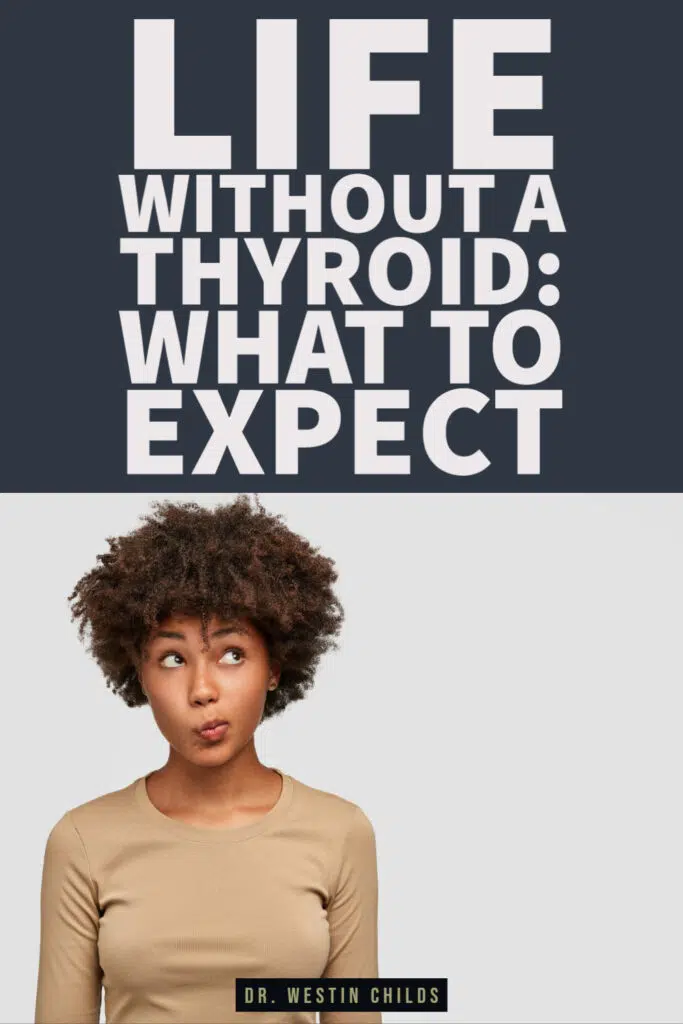
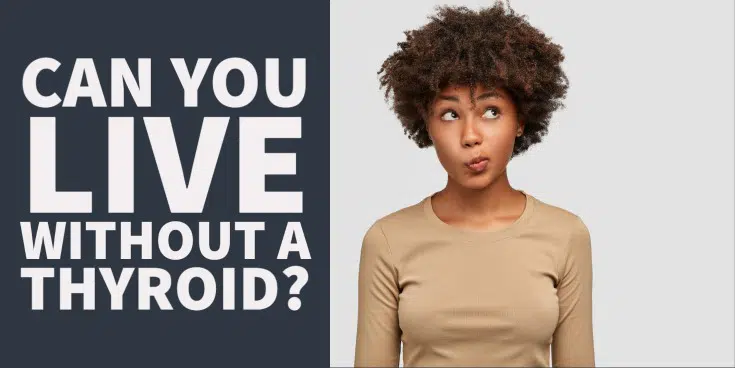

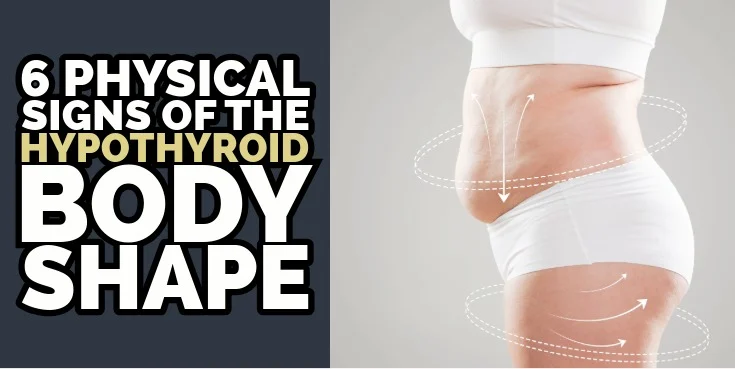
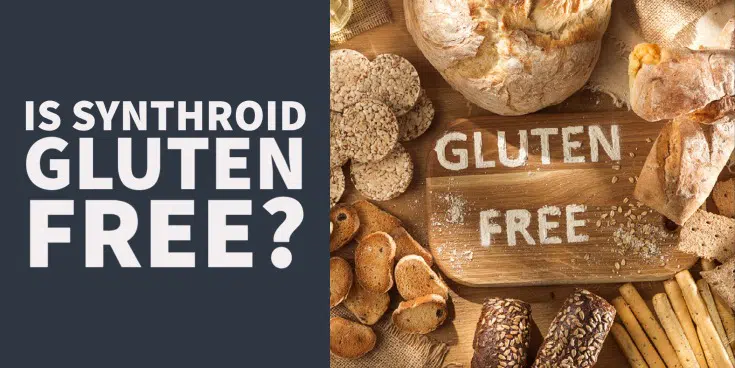
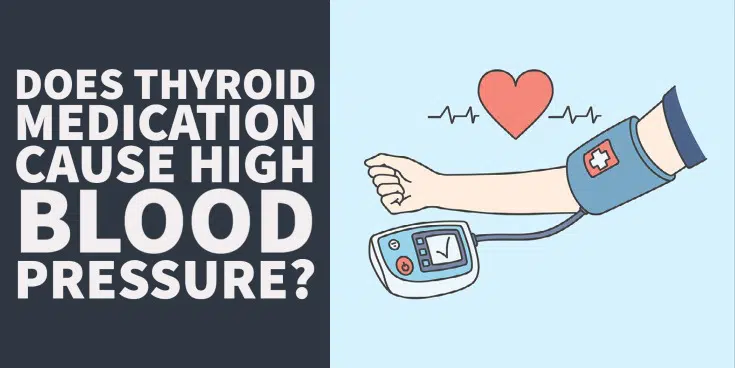

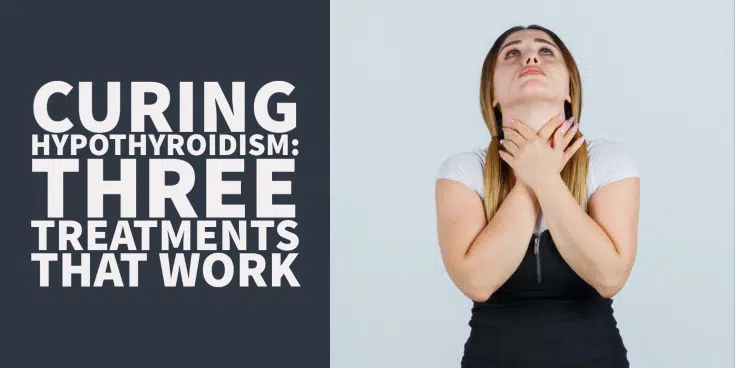
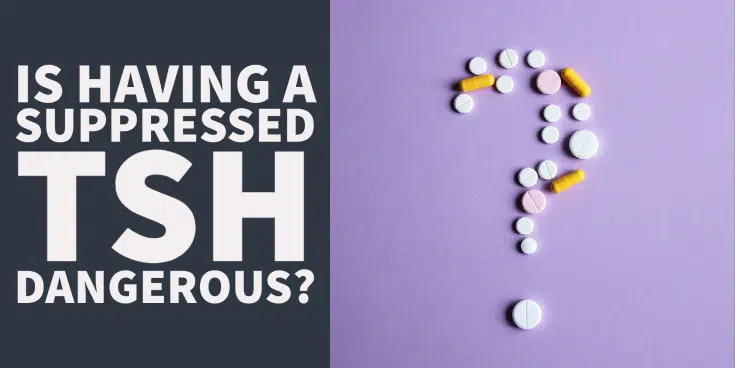

Dr. Childs,
I currently still have my thyroid and I am just started on a t4/t3 compound. I am considering a Thyroid removal mainly because my thyroid is inflamed, painful, and I am so tired of feeling like I am choking all the time. However I realize how important my thyroid gland is. Any suggestions on thyroid inflammation. Nothing but Benadryl seems to help.
Respectfully,
Jamie Trough
Hi Jamie,
These two articles should help shed some light on your situation:
https://www.restartmed.com/thyroid-pain/
https://www.restartmed.com/thyroiditis/
Hi Dr. Childs,
I had a partial thyroidectomy due to papillary thyroid cancer. Since the removal and being placed on Tirosint, over the past two years, I have noticed weight is now sticking (particularly in the belly and upper thigh area). My endocrinologist cannot prescribe cytomel because I also have celiac disease (and it is not gluten free), despite that being the direction she wanted to take me initially. I’ve supplemented with zinc and selenium, but was recently told to stop the selenium, as my blood levels were just over the normal range. Since stopping the selenium supplements, however, I’ve noticed the weight sticking more, despite increased exercise. Any recommendations on directions I should pursue with my endocrinologist would be appreciated.
Respectfully,
Stacy
Hi Stacy,
For weight loss, you’ll want to ensure that your free t3 and total t3 are in the optimal range. You can find more info about those ranges here: https://www.restartmed.com/normal-thyroid-levels/
I removed my thyroid 12/20 due to Grave disease and after dealing with it for over 7 years. I wasn’t sure about my decision, but felt that was my best option. Since surgery, I am having an extreme dizziness and they checked my ears and hearing but nothing. Also i got my period after surgery and it was within 2 weeks fromy last one. It started 12/24 and still going. It is heavy but it has been like for most of my life. I tried to contact my Endo but in vain
Hi Safaa,
It sounds like you may need to get your levels tested and your medication adjusted.
Hello Dr.Childs,
I was diagnosed with Gravea Disease is December of 2018. After negative results takkng the oral medication, I developed very bad anxiety. In hopes of dissipating the anxiety, racing heart, uncontrolable weight loss, heat intolerance and diarrhea, I decided to have RAI therapy. Based on test results the procedure worked. However, now in June of 2020 my PCP is still trying to find the right dose of Levothyroxine for me and yet I am still experiencing some symptoms. Anxiety and painful bowel issues are the most prominent symptoms. He says that I don’t “really” have Graves anymore since my thyroid is dead so I can’t really be having thise same symptoms. The anxiety is something that has predominantly taken over my life and I barely leavw the house. I have 3 boys and want my life back. I do not want to have to rely on an anxiety medication daily for the rest of my life. I need some help an guidance. At 35 I have basically stopped living my life thanks to this disease and the anxiety and bowel issues it causes me. Any help would be appreciated. I do not like the way the medication for anxiety makes me feel.
Hi Dr
I’ve been recently diagnosed with papillary thyroid cancer after doing partial thyroidectomy. The histology report stated that there are still some cells left. What can be your opinion on this? Which route must I take? RAI or surgery?
Thank you
Hi Zinhle,
Most likely you will need a complete thyroidectomy +/- RAI depending on the stage of your cancer.
Have had a nodule on r/s of my thyroid for several years. It has now grown to 4.6 x 23.9 x 3.8. A smaller one is on the l/s. Other than a slight “adams apple” I have no other symptoms, thyroid is operating well, no pain, no choking, nothing. But because I had an upper left lobectomy 9 years ago (adenocarenoma stage 1, surgery, no chemo or radiation needed), my doctor is pushing me to have thyroid removed. Being on medication to live scares the crap out of me. Thoughts?
Hi Debbie,
My recommendation is always to keep your thyroid gland unless it’s absolutely necessary to remove it. It doesn’t sound like you necessarily have to remove it based on the information you provided but there could be other information missing here which is important.
Greetings, my thyroid was removed 15 years ago, it took nearly 5 years of medication changes to finally settle on a dosage that works for me. My job causes me to relocate a lot and I’ve had to change doctors a few times (though I will travel huge distances to keep a doctor). Recently my doctor retired and now I must find a new one, scariest thing I do! I always bring my records (all past bloodwork) and still the communication is difficult. I’m 60 years old, and described as “very healthy” not over/under weight, good skin, hair, nails, no high cholesterol, or mood swings, I really am healthy. Yet every new doctor wants to “experiment” on me, this is extremely difficult for me .
So, I’ve been on Levothyroixine (0.125) and my tsh levels are close to non-existent (.0009), yet my T4, T3 sit right in the middle of the scale. I could use some advice on how to help my doctor (a new one next month) to see me as a whole person and not just a number. I always ask for more rather than less bloodwork but it still took extra work to get my last doctor to test T4/T3, he was hung up on tsh only and then lower my dose even though I look and feel good (I take no other medications and work outdoors often hiking 10+ miles a day carrying a 35 pound pack). What is a “normal” dose of levyothroxine?
I have more questions but for now, this will have to do.
Thank you
Hi Susan,
There really is no such thing as a normal dose of any thyroid medication but your dose is highly individualized. So what’s normal for you may not be normal for others. This dose depends on your genetics, your weight, how much inflammation is in your body, and a number of other factors.
Hi Doctor Childs….. I’m five years out from Removal. My doctor just retired. I’m on synthroid 100mcg. I’m tired cold and my hair is thinning. I feel depressed at times for no apparent reason. I’m being told that if anything I’m taking to high a dose. I need to go to a new doctor for labs soon. I’m not sure what to tell them. Because of the cancer they seem to keep me overly suppressed.
Hi Bobby,
I would start with a complete thyroid lab panel and make sure to you check to see if your labs are optimal: https://www.restartmed.com/normal-thyroid-levels/
what steps are there after having my thyroid removed, to make sure I get the proper amount of medication. Testing? What kind? How do I know what medication is best for me? How long does it take determine what I need? How will I know when everything is right?
Hi David,
You can check out this article for info on that exact topic: https://www.restartmed.com/normal-thyroid-levels/
I have no Thyroid, due to a Goiter, should I be taking iodine supplements?
I don’t like the side effect of “Syntroid, insomnia, rapid heart beat, (only once in awhile) and pressure on the chest. I really like to off the med. and take a Natural Thyroid Supplement. Try a couple times, didn’t work had to back on the med. Which is the only one I am on. Not a big fan of Prescription Drugs.
Thank you!
Hi Pat,
Once your thyroid has been removed you will need to be on some form of thyroid medication for the rest of your life as you need thyroid medication to survive. You can still use supplements, however, in addition to your thyroid medication and you can find a list of supplements which are approved if you do not have a thyroid here: https://www.restartmed.com/product-category/thyroidectomy-supplements/
Hi Dr. Child’s,
I had a total thyroidectomy last year + RAI 154 mci. My stomach has been destroyed since, 34 lbs weight gain with clean eating, extreme migraines, extreme sensitivity to cold and hot temperatures, mood swings, etc.
My tsh was 6 for a a year after surgery going from 100-125 of levothyroxine. Now 150 levothyroxine my tsh is at 0.5 , has remained this for the last few months still experience extreme symptoms though.
Anything I can do to alleviate? I’m five months post RAI.
I had afib due to thyroid after getting the heart regulated back in rhythm the thyroid was tested and determined it was to be removed. I gained 40 pounds in less than 2 months. Major gut discomfort ,gas ,bloating. I am finallaly taking synthroid 80 and 100 every other day. I have adjusted diet to under 900 calories and exercise to burn at least 900 if not double ,no salt low carb ,only water or water with lemon ,no sugar. I have down loaded your 10 foods to avoid and your article listing tests to be requested . Protein water has helped the sever pains in my legs . I am determined to loose the 40 pounds and feel human again. I’m am so off balance I am larger than I was 9 month pregnant. I have fat where I was never fat before.
Hi Dr. Childs,
I recently was diagnose with graves disease. I am being told I need to have the iodine ablation, but im scare I will gaing weight (im military part of my job is to be fit.) and I want another child and I really don’t want my depression to worsen. What is like life after the procedure can i still be fit and active? can I have a child no complications? Will I be depress.
Hi Dee,
Many people can undergo RAI without weight gain. The key is to go into it with optimal hormones and at a normal weight, this will reduce the chance that you will gain weight but doesn’t eliminate it entirely.
Dr. Childs I just met a lady who ha her Thyroid removed she is on Medication. She lives in the Philippines and has not taken the Vaccine she is afraid of it. what would you suggest. She can’t get on a plane without the vaccine and is afraid of dying. I want her in my life and want to know all I can about what I can do .
Hello Dr Childs
I’ve had Hypothyroidism since 1999, I have been taking Thyroxine for all of that time. I was taking 100mcg’s a day until my latest blood test said that my level was too high. so the Thyroxine has been reduced to 75mcg’s. Now I have been between these two amounts of Thyroxine for a few years now going from underactive for a while to overactive and vice versa. Are there any lower doses of Thyroxine that I could take to make up the deficit so that I don’t go overactive so often? I have Type1 Diabetes and I am overweight also my Thyroid gland is very noticable in my Neck .
Hi Maxine,
There is a dose of 88mcg of levothyroxine that you could consider!
Hi I have over 12 glands around my thyroid and there’s one that’s as big as 3.3 centimeters the doctors suggested I remove it I don’t know what to do I’m worried what should I do
Question for you:
In 2001 I had the right half of my thyroid removed because of a benign multifolicular cyst that was embedded in it. Then I started to develop nodules on my left thyroid lobe. Now I have several, one of them is 4 cm. My Dr. said I could have the other half of my thyroid removed. She also said I could do RFA however it’s not covered by my insurance. Another option she said is to just watch it. It’s starting to cause swallowing and minor breathing issues because it’s so big. I’ve never needed any replacement hormones, my left lobe has always compensated. I’m afraid to be completely dependent on medication for my survival for the rest of my life (I’m 48). Do you have any recommendations or maybe suggestions besides those suggested by my Dr. ? Thank you
Hi Sue,
You can always try natural therapies to see if you can kick the remaining thyroid gland back into action. That would be your best shot if you are trying to avoid medication: https://www.restartmed.com/natural-remedies-for-hashimotos-thyroiditis/
Supplements may also be help: https://www.restartmed.com/product/hypothyroid-bundle/
Hello Dr Childs,
I’m very concerned for my daughters health. Has always been healthy. This may sound crazy but I strongly believe she had a reaction to the Covid-19 Vaccine. About a month after her second vaccine. We noticed a huge weight loss. She always tried finding logical explanations for her body changes. Stress from her 1st year of teaching, skipping breakfast at times, no longer eating late dinners so felt it was helping. This was someone who in high school worked out, ate well with no results to all of a sudden start shedding off weight so rapidly. I noticed she was sweating a lot, experiencing hot flash symptoms yet too young, only 24. Hands shaking. A coworker suggested she start monitoring her heart rate, because may be an indication to Thyroid issues, well sure enough she was running high heart rate numbers. Ultimately same week hitting almost 140 i took her to urgent care where they ran tests and said it was Tachycardia, she had an enlarged thyroid, her metabolism was overactive causing all this weightloss. She just got married. Was hoping to start a family, but with meds she’s on advised cannot. They say her Thyroid is double in size than what it normally should be she has a goiter says she feels fine. No problems breathing her heart rate has been okay but Surgery was also given as an option as the RadioActive Iodine. The RAI worries me, but so does the surgery? It’s just crazy about a year before or a lil less she had seen her Dr did blood work no signs of Thyroid issues. And a month after Covid 19 vaccine is when her Thyroid issues began. What are your thoughts. Is it really her best option to go through with surgery. I worry about the side effects after. Since she will no longer have her Thyroid gland. Is surgery her best option to be healthier & to be able to get pregnant and start a family? Or do you recommend she stay on meds longer to see if it brings back her hormone levels back to a normal range where she can get off and get pregnant. It’s been over 6 months she’s been on these meds but I know they are strong and as long as she is on them she can’t consider to get pregnant. I just wonder if surgery is too drastic and maybe just need to be more patient and not jump into surgery. I feel if she hadn’t gotten Covid vaccine she wouldn’t be going through this.
Hi Chabely,
As long as she has time, it’s always worth exploring natural treatments prior to thyroid removal or RAI as these are permanent. Not everyone has the luxury of time, though, so it’s not always an option but if it is for her, then I would recommend checking out this 1-hour podcast: https://www.restartmed.com/how-to-prevent-thyroid-surgery-and-radioactive-iodine-ablation-therapy-dr-osansky-and-dr-childs/
Hello Dr Childs,
I’m very concerned after surgery both remove thyroids.
After two week surgery I receive this information.
PATHOLOGICAL STAGING: pT1b (m)pNXpXR0
Diagnosis: Papillary carcinoma of Thyroid
15 mm and 10 mm in left lobe
3 mm and 2 mm right lobe
Greatest tumour dimension: 15 mm
Lymph nodes: Identified: 0
Should right had surgery or too early
Doctor keep say to me few times early Stage
Dear Dear Childs
Thank you beforehand for reading my question. I have a large goiter on my left neck. It was a tiny bump first but after I had cataract surgery it turned into a melon within three days. It is now a bit smaller: a coconut. I have no symptoms at all no pains, no coarse voice nothing. I only look like the Hunchback of Notredame. Would you recommend removal? Thank you thank you very much.
Hi Dr! I had my thyroid removed several years ago and have been on synthroid ever since. I’ve recently sought out a homeopath and she has given me all natural hormone pills to take.(combination) I plan on taking iodine also. What are your thoughts on this. I’m just doing a bit more research before going off my big pharma, synthetic garbage.
Hi .. I currently have my thyroid.. been on medication for an under active thyroid since 1994 .. but recently had an MRI Done on my neck..for other reasons.. as of result.. my thyroid came has a goiter.. and doctor #2 then ordered a sonogram to get size of my goiter.. and viewing a 4.7cm Nodule . Then as of that lead to a 3 pass w/needle for biopsy.. receiving news yesterday.. that it’s 75% cancer.. to my surprise.. my medication for Levothyoxine 0.175mcg currently.. doctor #2 said he’ll probably up my dosage.. after total removal just curious how long does one live without the thyroid after 62? In less than 2 weeks is removal time.
Hi Ginny,
As long as your thyroid medication is optimized after your thyroid is removed, your thyroid shouldn’t directly increase your risk of all cause mortality or result in premature death. This doesn’t always happen, though, which can cause a slight increase in risk for various medical conditions ranging from benign to severe. It is the presence of these diseases, if acquired, that may result in that increase in mortality.
I had my Goiter and Thyroid removed in March of 1995. In the last 5 years, my TSH level has been going down. I have been surviving on 0.175 mg of Synthroid. My last TSH result is at 0.22 which is below the low normal value. My doctor who is new to the business, wants to decrease my Synthroid meds. I have all the classic reactions, wanting to sleep 18 hours a day, muscle aches, high blood pressure, and weight gain. I do not know what to do that will fix my problem. I have little trust in this doctor.
Hi Janet,
The TSH is not the best indicator of thyroid function, especially after thyroid removal. If your doctor lowers your dose it’s very likely your symptoms will get worse. You can learn more about additional tests that can be ordered here: https://www.restartmed.com/normal-thyroid-levels/
Hello Dr. Childs,
I had 3/4 of my thyroid removed 20 years ago for goiter, benign. Been on Levothyroxine.
I have a 3.3 cm goiter, they say benign, in my existing thyroid that is causing trouble swallowing pills, some hoarseness and some breathing problems. Considering surgery or RFA. Any suggestions for me ?